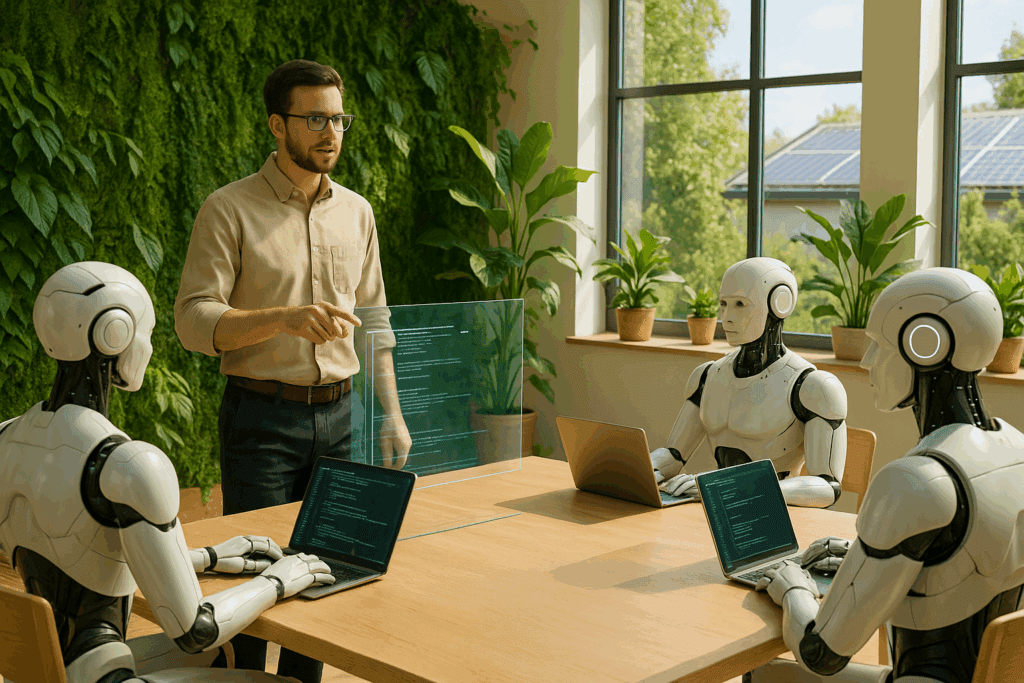
Throughout history, progress has often been met with resistance. From the Luddites destroying mechanical looms to modern taxi drivers protesting ride-sharing apps, innovation disrupts established norms. Today, we’re witnessing a similar transformation in software development—a field that, ironically, has been instrumental in disrupting countless other industries while remaining somewhat resistant to its own evolution.
For decades, we’ve elevated programming to something akin to artistry. We’ve written books about clean code, debated the aesthetics of different languages, and developed cultural identities around our technology stacks. But we’ve lost sight of a fundamental truth: code itself is not the end goal.
Code is simply a means to an end—a necessary bridge between human intent and computer execution. It exists because we haven’t yet developed hardware that can directly manifest our intentions. The value isn’t in the code itself but in what it enables.
When I began my career, I worked on a project where one of the founders built a framework that automatically generated 80-90% of our backend code. This early experience showed me that software could be generated rather than painstakingly handcrafted. Since then, I’ve continually sought tools that minimize manual coding—Rapid Application Development frameworks, code generators, and now AI assistants.
This progression follows a natural evolutionary path similar to other industries:
Each stage has met resistance from those who mastered the previous paradigm, but each has ultimately prevailed because it delivers more value more efficiently.
The emergence of AI in software development isn’t eliminating the need for human involvement—it’s elevating it. As routine coding tasks become automated, developers are freed to focus on higher-level engineering challenges.
There’s a meaningful distinction between programming and engineering:
AI tools excel at the former but struggle with the latter. They can generate code based on patterns they’ve observed, but they can’t yet make the creative leaps required to solve novel problems or understand the nuanced business context that shapes technical decisions.
Early resistance to AI code generation often focuses on quality concerns: “It doesn’t write code exactly as I would.” But this misses the point entirely. The goal isn’t to replicate human coding patterns—it’s to deliver functional software that meets business needs.
Unlike RAD frameworks that often boxed developers into rigid patterns, AI assistants offer unprecedented flexibility. They can adapt to new requirements and generate custom solutions within minutes rather than days. This combination of adaptability and speed enables a more iterative, experimental approach to software development.
As AI capabilities continue to advance, the role of software professionals will evolve toward:
The most successful teams will be those that embrace AI as a collaborator rather than viewing it as a threat. They’ll develop new workflows that leverage both human creativity and machine efficiency, creating a symbiotic relationship that delivers better software faster than either could alone.
There’s a clear parallel between hand-assembled luxury cars and manually written code. While craftsmanship has its place, the market increasingly favors efficiency and accessibility. Just as few would pay a premium for a hand-assembled car that performs identically to its mass-produced counterpart, businesses won’t continue paying for manually written code when AI-generated alternatives deliver equivalent functionality at a fraction of the cost.
This is simply practical evolution—and an opportunity. By embracing AI assistance, we can focus on the truly meaningful aspects of software development: solving complex problems, creating intuitive user experiences, and delivering business value.
The industrial revolution in software development is already underway. The question isn’t whether AI will transform our field, but how quickly we’ll adapt to the new landscape it creates.
Those who cling to the romantic notion of coding as an art form may soon find themselves in the position of artisanal craftsmen—respected for their skill but increasingly detached from the mainstream. Those who embrace the change will help shape a new era where software development becomes more accessible, efficient, and focused on outcomes rather than implementation details.
The future belongs to the engineers, not the programmers.
© 2025 angen.ai. All rights reserved.